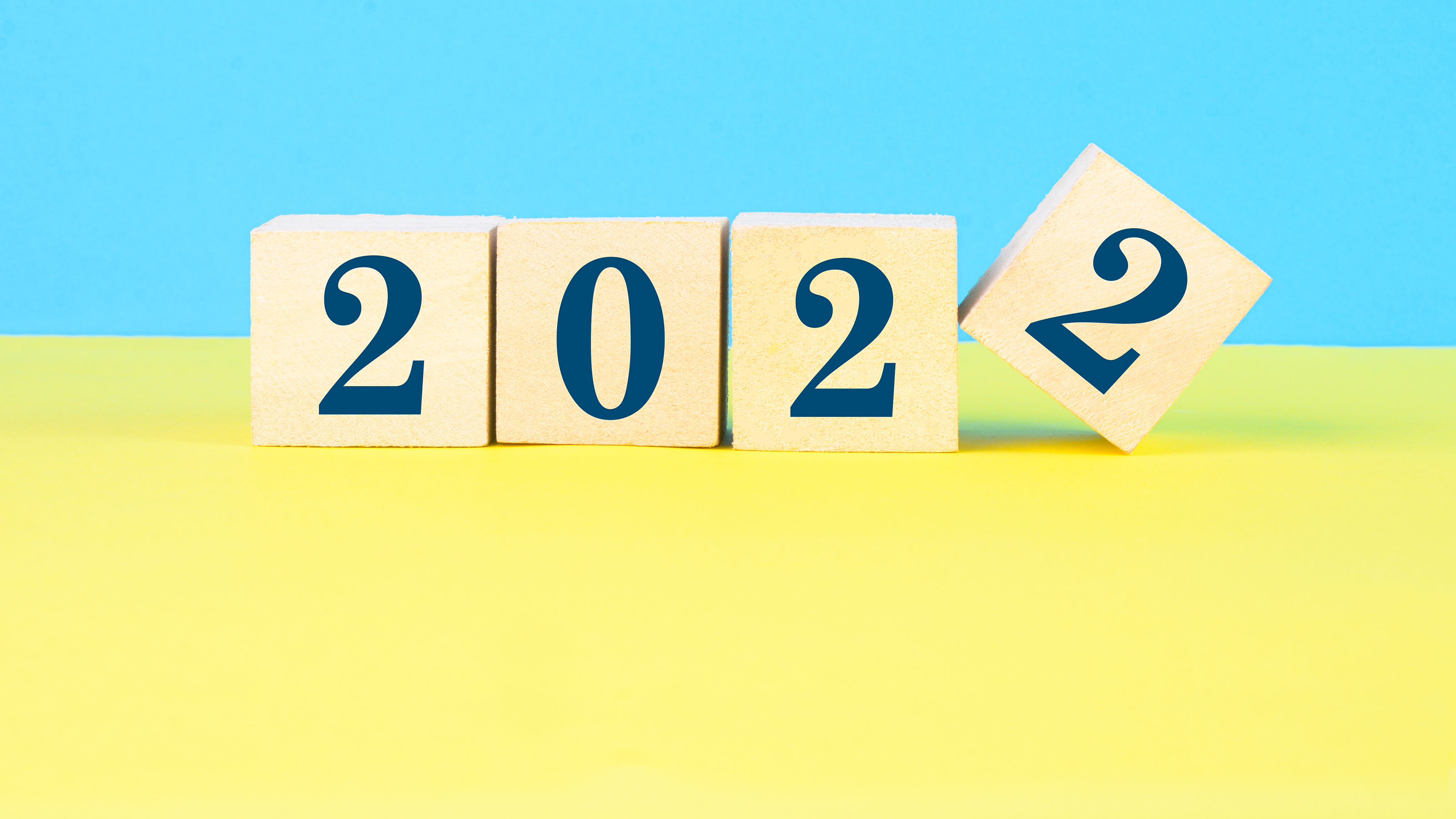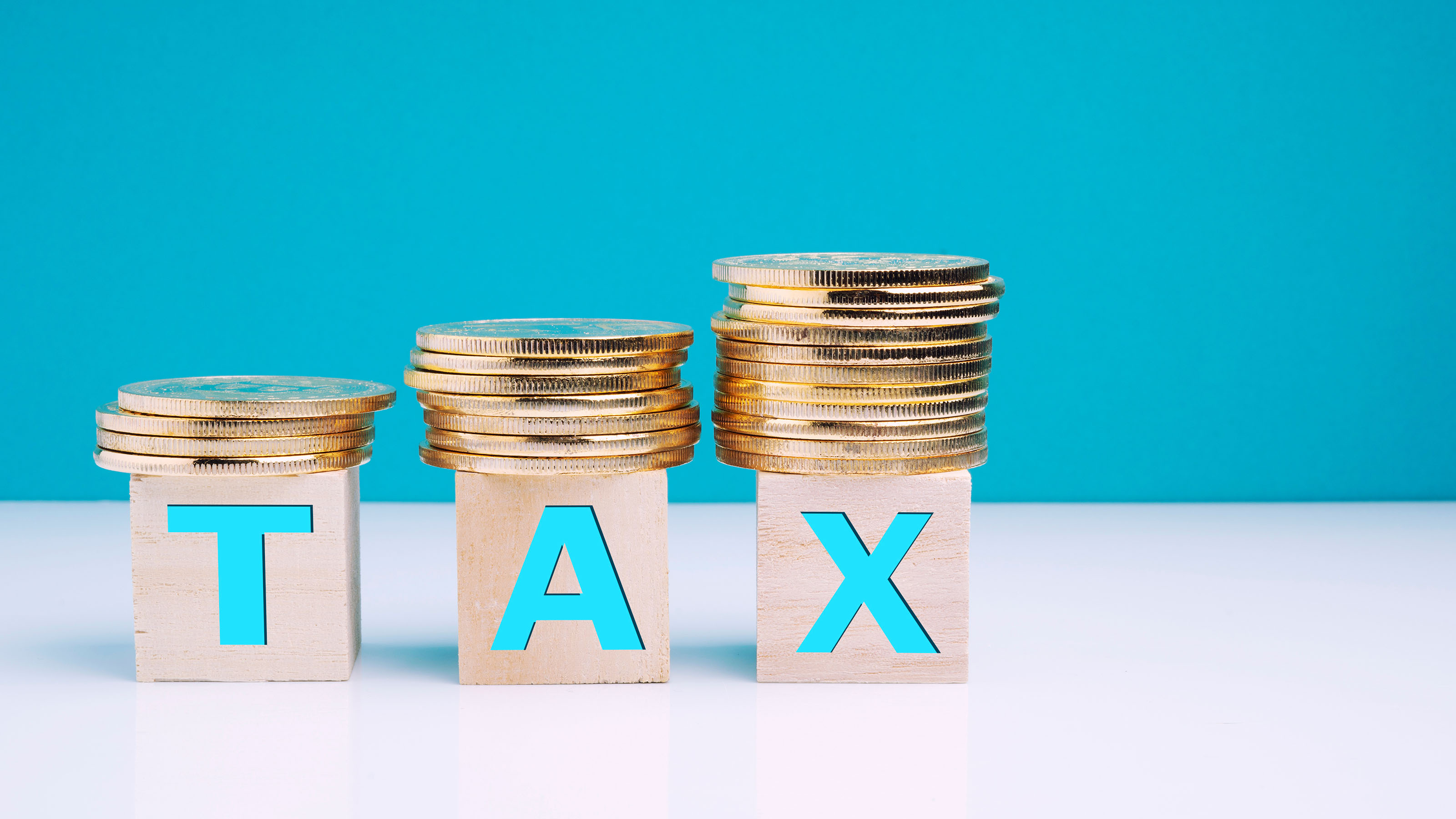Top Tax Stories of 2022 (That Still Matter for 2023)
Kiplinger highlights some of its top tax stories of 2022 about topics that can still impact your finances in 2023.


Profit and prosper with the best of Kiplinger's advice on investing, taxes, retirement, personal finance and much more. Delivered daily. Enter your email in the box and click Sign Me Up.
You are now subscribed
Your newsletter sign-up was successful
Want to add more newsletters?

Delivered daily
Kiplinger Today
Profit and prosper with the best of Kiplinger's advice on investing, taxes, retirement, personal finance and much more delivered daily. Smart money moves start here.

Sent five days a week
Kiplinger A Step Ahead
Get practical help to make better financial decisions in your everyday life, from spending to savings on top deals.

Delivered daily
Kiplinger Closing Bell
Get today's biggest financial and investing headlines delivered to your inbox every day the U.S. stock market is open.

Sent twice a week
Kiplinger Adviser Intel
Financial pros across the country share best practices and fresh tactics to preserve and grow your wealth.

Delivered weekly
Kiplinger Tax Tips
Trim your federal and state tax bills with practical tax-planning and tax-cutting strategies.

Sent twice a week
Kiplinger Retirement Tips
Your twice-a-week guide to planning and enjoying a financially secure and richly rewarding retirement

Sent bimonthly.
Kiplinger Adviser Angle
Insights for advisers, wealth managers and other financial professionals.

Sent twice a week
Kiplinger Investing Weekly
Your twice-a-week roundup of promising stocks, funds, companies and industries you should consider, ones you should avoid, and why.

Sent weekly for six weeks
Kiplinger Invest for Retirement
Your step-by-step six-part series on how to invest for retirement, from devising a successful strategy to exactly which investments to choose.
Readers were interested in many important tax issues during the past year, but the most-read tax stories on Kiplinger.com involved questions surrounding state stimulus checks, federal income tax brackets, the Powerball lottery jackpot, and whether you’ll get a Form 1099-K from Venmo or PayPal.
So, in case you missed some of these, here’s a look back and recap of Kiplinger’s top tax stories of 2022. A few of these tax issues could still impact you this year, 2023.
Income tax brackets

During 2022, readers flocked to a story that answered a popular tax question—what are the income tax brackets? Knowing your income tax bracket is important because that tax bracket determines your tax rate (i.e., the amount of tax that you’ll generally be expected to pay on at least some of your income).
From just $107.88 $24.99 for Kiplinger Personal Finance
Become a smarter, better informed investor. Subscribe from just $107.88 $24.99, plus get up to 4 Special Issues

Sign up for Kiplinger’s Free Newsletters
Profit and prosper with the best of expert advice on investing, taxes, retirement, personal finance and more - straight to your e-mail.
Profit and prosper with the best of expert advice - straight to your e-mail.
There seven federal income tax rates are 10%, 12%, 22%, 24%, 32%, 35% and 37%. And that can be confusing sometimes, because those rates don’t change. But the federal income tax brackets (that get matched to those rates) do change, because they are adjusted yearly for inflation. That’s partly why you can end up in a different tax bracket from one year to the next and possibly end up paying a different tax rate on some of your income.
So, if you want to know what your income tax bracket will be for 2023, or want to double check your bracket for the 2022 tax year, see our updated story: What Are the Income Tax Brackets for 2022 vs. 2023?
More: Federal Tax Brackets and Income Tax Rates
Powerball after taxes

Hundreds of thousands of you wanted to know about Powerball lottery taxes in 2022.
This story came about at the end of October when the Powerball Lottery jackpot climbed to an estimated $825 million. By November, the Powerball jackpot had ballooned to world record status—about $2.04 billion. And that had everyone wondering what the Powerball winning numbers were and how much someone would take home after taxes if they won the Powerball.
The federal government will withhold 24% of the winnings off the top. However, the amount of tax a Powerball lottery winner will pay depends on factors including the jackpot amount, the payout option the winner chooses, the winner’s federal tax bracket, and the applicable state tax rate.
If you’re interested, Powerball drawing days are every Monday, Wednesday, and Saturday. Mega Millions drawings are every Tuesday and Friday at 11 pm ET.
New state 'stimulus checks'

2022 was a big year for stimulus checks. However, it’s important to note that the stimulus checks that went out last year were not the stimulus checks from the federal government that many people received during the COVID-19 pandemic. Instead, the stimulus checks and tax rebate checks came from various states. That’s because a lot of states were sitting on budget surpluses and as a result, issued “stimulus” checks and tax rebates to eligible residents.
For example, California stimulus check payments were sent throughout the year. And in Virginia, eligible residents who filed their 2021 Virginia tax return by November 1, received a Virginia tax “stimulus” rebate of up to $500.
If you haven’t received a stimulus check for 2022 and think you are eligible, check our latest updates on state stimulus checks and tax rebates. (Some states are sending those checks during 2023 as well.)
1099-K reporting threshold

There has been a lot of confusion over an IRS reporting threshold for the Form 1099-K.
A new $600 1099-K tax reporting threshold meant that millions of people paid for goods or services through third-party networks like PayPal, Venmo, Square, etc., would receive a 1099-K in January if they were paid more than $600. (The previous trigger for a 1099-K was $20,000 and 200 transactions.)
But, in the face of backlash from some lawmakers and advocacy groups, the IRS announced, at the end of 2022, a delay of the so-called $600 rule for 1099-Ks. That delay means that people with a smaller amount of payments for goods and services from third-party payment networks (which includes a wide range of businesses—not just PayPal and Venmo) won’t receive a 1099-K in January.
However, people who meet the previous threshold of $20,000 in payments for goods and services on third-party networks will still receive a 2022 Form 1099-K.
For more information on what the Form 1099-K is and what’s going on with the $600 rule delay, see You Might Not Get a Form 1099-K From Venmo, PayPal, or Cash App.
Profit and prosper with the best of Kiplinger's advice on investing, taxes, retirement, personal finance and much more. Delivered daily. Enter your email in the box and click Sign Me Up.

Kelley R. Taylor is the senior tax editor at Kiplinger.com, where she breaks down federal and state tax rules and news to help readers navigate their finances with confidence. A corporate attorney and business journalist with more than 20 years of experience, Kelley has helped taxpayers make sense of shifting U.S. tax law and policy from the Affordable Care Act (ACA) and the Tax Cuts and Jobs Act (TCJA), to SECURE 2.0, the Inflation Reduction Act, and most recently, the 2025 “Big, Beautiful Bill.” She has covered issues ranging from partnerships, carried interest, compensation and benefits, and tax‑exempt organizations to RMDs, capital gains taxes, and energy tax credits. Her award‑winning work has been featured in numerous national and specialty publications.
-
 The New Reality for Entertainment
The New Reality for EntertainmentThe Kiplinger Letter The entertainment industry is shifting as movie and TV companies face fierce competition, fight for attention and cope with artificial intelligence.
-
 Stocks Sink With Alphabet, Bitcoin: Stock Market Today
Stocks Sink With Alphabet, Bitcoin: Stock Market TodayA dismal round of jobs data did little to lift sentiment on Thursday.
-
 Betting on Super Bowl 2026? New IRS Tax Changes Could Cost You
Betting on Super Bowl 2026? New IRS Tax Changes Could Cost YouTaxable Income When Super Bowl LX hype fades, some fans may be surprised to learn that sports betting tax rules have shifted.
-
 Betting on Super Bowl 2026? New IRS Tax Changes Could Cost You
Betting on Super Bowl 2026? New IRS Tax Changes Could Cost YouTaxable Income When Super Bowl LX hype fades, some fans may be surprised to learn that sports betting tax rules have shifted.
-
 Should You Do Your Own Taxes This Year or Hire a Pro?
Should You Do Your Own Taxes This Year or Hire a Pro?Taxes Doing your own taxes isn’t easy, and hiring a tax pro isn’t cheap. Here’s a guide to help you figure out whether to tackle the job on your own or hire a professional.
-
 Can I Deduct My Pet On My Taxes?
Can I Deduct My Pet On My Taxes?Tax Deductions Your cat isn't a dependent, but your guard dog might be a business expense. Here are the IRS rules for pet-related tax deductions in 2026.
-
 Don't Overpay the IRS: 6 Tax Mistakes That Could Be Raising Your Bill
Don't Overpay the IRS: 6 Tax Mistakes That Could Be Raising Your BillTax Tips Is your income tax bill bigger than expected? Here's how you should prepare for next year.
-
 Oregon Tax Kicker in 2026: What's Your Refund?
Oregon Tax Kicker in 2026: What's Your Refund?State Tax The Oregon kicker for 2025 state income taxes is coming. Here's how to calculate your credit and the eligibility rules.
-
 3 Retirement Changes to Watch in 2026: Tax Edition
3 Retirement Changes to Watch in 2026: Tax EditionRetirement Taxes Between the Social Security "senior bonus" phaseout and changes to Roth tax rules, your 2026 retirement plan may need an update. Here's what to know.
-
 IRS Tax Season 2026 Is Here: Big Changes to Know Before You File
IRS Tax Season 2026 Is Here: Big Changes to Know Before You FileTax Season Due to several major tax rule changes, your 2025 return might feel unfamiliar even if your income looks the same.
-
 12 Tax Strategies Every Self-Employed Worker Needs in 2026
12 Tax Strategies Every Self-Employed Worker Needs in 2026Your Business Navigating the seas of self-employment can be rough. We've got answers to common questions so you can have smoother sailing.